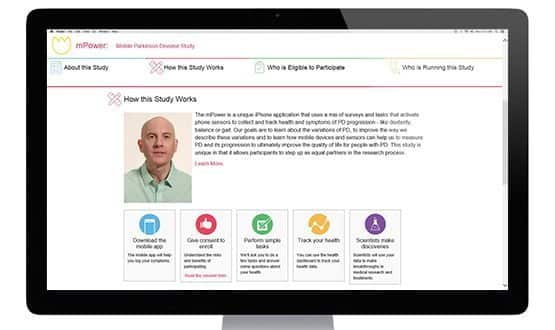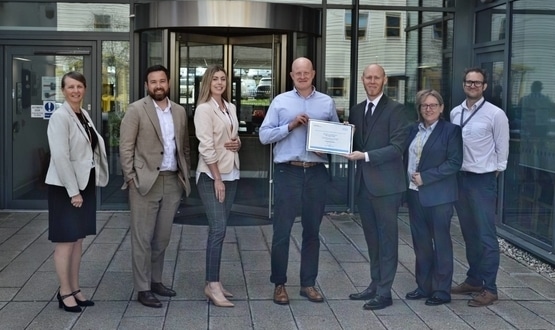Power to the people: takes another bite of Apple

You might be forgiven for thinking that the biggest tech event of the last week was the launch of the Apple Watch. It wasn’t.
Under the radar Apple was also launching ResearchKit; its new open source platform for developers of health research apps.
ResearchKit aims to do for health research what the iStore did for apps in general – provide access to an evolving set of tools that will let developers create apps that enable anyone using an iPhone to participate in research.
In doing this they are fundamentally changing the relationship of patients to research. The aim of ResearchKit is three fold:
- Scale the rate at which data is collected. Why collect data once a month at clinic when you can measure it every minute?
- Involve many more patients in research and self-care
- Shift the power to patients by making research – topics, protocols, participation, crowd-funding – more open.
A whole new approach to data collection
Apple has been working with Sage Bionetworks , a non-profit foundation based in Seattle, to develop ResearchKit.
Alongside the Apple launch, Sage released several apps including mPower, which is aimed at supporting research into Parkinson’s disease.
The mPower app measures gait as well as distance moved, can be used to help diagnose Parkinson’s disease by analysing voice patterns, and encourages app users to sign up to become members of its research community.
And since they are interested in the range of normal, you don’t even have to have Parkinson’s disease yourself to use it (although, currently, you do have to live in the US to access any of the Bionetwork apps).
Apple and Sage Bionetworks seem to have thought quite a lot about security and information governance, with all the data (at least on these early apps) being held on Sage Bionetwork’s not for profit servers with strict user control over a range of sensible opt-in options.
Over time, it is likely that ResearchKit outputs will compete and contrast with those of care.data. It will be interesting to see how this plays out. The names are a good guide: Health Kit is about kit. Care.data is about data.
One is a set of open source kit released to a sophisticated network of users. It is loose, fluid, innovative, uncontrolled and very much ‘opt in’. Like all big tech firms, Apple wants to own ‘the ground of being’ of the app network – but within broad parameters is agnostic about who actually builds what.
Care.data by contrast is about data: a single massive, corralled, central database aimed at 50 million people via a philosophy that is very much ‘opt out’.
This is what the future (probably) looks like
My guess is that apps built with ResearchKit will rapidly outperform care.data in terms of extending self-care, generating massively scaled, patient generated research data, and refocusing innovation on patient-identified needs.
Care.data’s singular advantage lies in the fact that it aims to get its hands on everyone’s data (hence its obsession with opt out rather than opt in).
Assuming that the majority of our fellow citizens are happy to live with their health data being passively co-opted, then care.data will be useful for all those things that demand good coverage and accurate denominators. These include planning local services and actively supporting the digitally excluded.
ResearchKit is also likely to disrupt traditional research models. The old model of “us” (funders) giving money to “you” (researchers) to study “them” (patients) is probably ending.
Ethics committees may find themselves looking down the wrong end of a barrel at very large communities of self-consented patients, keen to research their own agendas with no use for an ethics committee industry still labouring under the delusion that somehow it’s their business to say yea or nay to who gets to do what.
Real power to the people
ResearchKit is also likely to trigger a frenzy of collaboration between patients and clinicians. The Dutch Parkinson’s Disease network of patients and specialist clinicians has already transformed care in the Netherlands and Patient View, which grew out of the patient-clinician Renal View community here in the UK, is heading the same way here.
Meanwhile the inspirational patient activist Nick Sireau at the AKU Society is building FindaCure which aims to build exactly those patient-clinician communities that will be key to changing the face of research. Expect many more of these creative collaborations.
The turning point in most of the digital revolutions of the last 20 years has occurred when a set of high quality but loosely controlled digital tools has been released to a willing network of autonomous individuals.
From Tim Berners-Lee at CERN through eBay, YouTube and Wikipedia, to Kick Starter, fab labs and Bitcoin this combination has been successful because it gives you and me access to the tools – the means of production – that previously have been the preserve of elites.
ResearchKit is likely to be the same kind of game changer; but this time the solutions will arise from the new digital communities of patients, carers, clinicians and researchers.
These communities are not looking for the killer app that will make them millions. Rather they are all held together by the urgent human tragedy and enchantment of trying to find the cure for the disease that holds them, struggling or enthralled, in its grip.


Paul Hodgkin
Paul Hodgkin is founder and chair of Patient Opinion, a website on which patients, service users, carers and staff can share their stories of care across the UK. Patient Opinion is a not-for-profit social enterprise based in Sheffield.
Until 2011, Paul also worked as a GP and has published widely including in the BMJ, British Journal of General Practice and the Guardian and the Independent. Follow him on Twitter @paulhodgkin.





